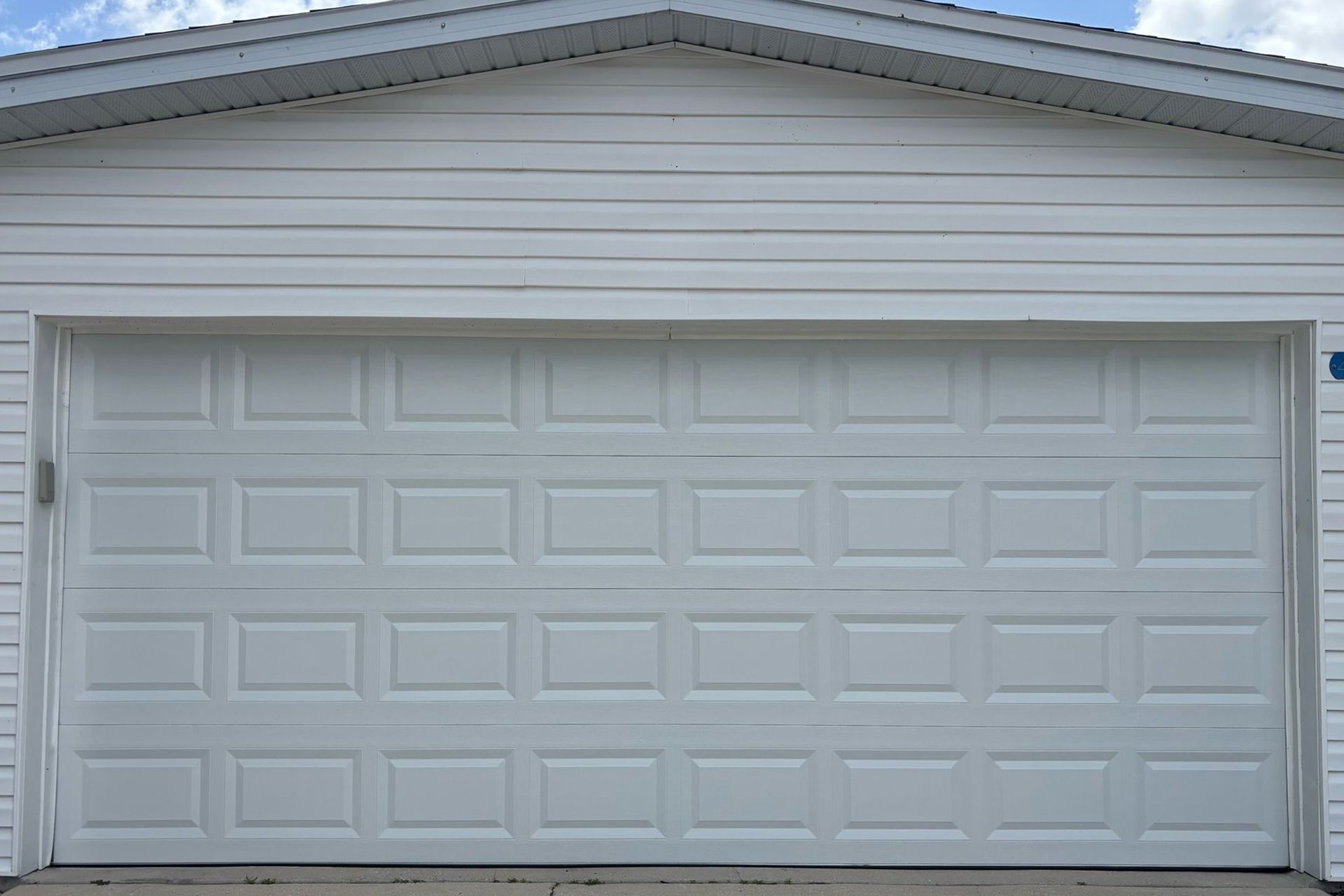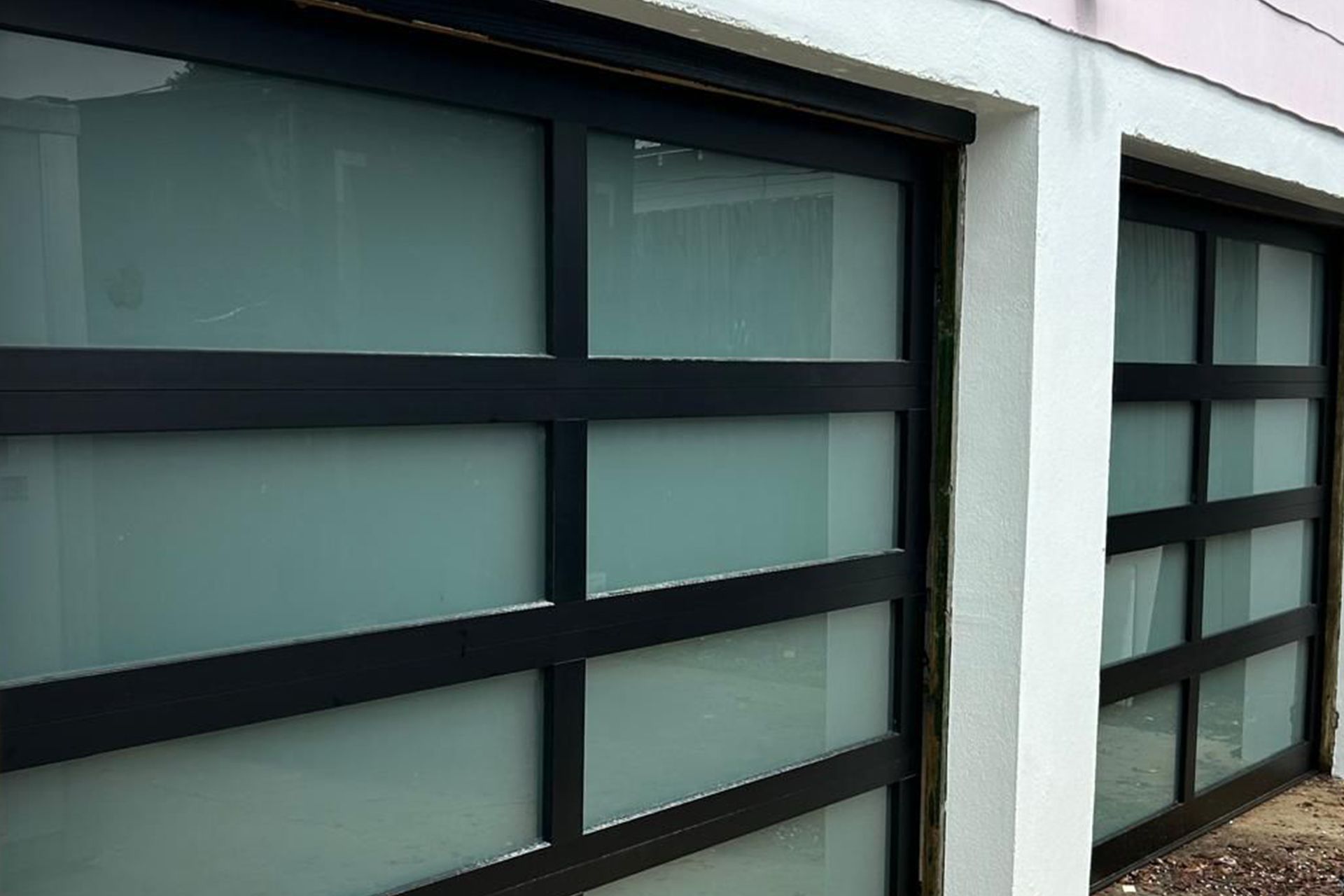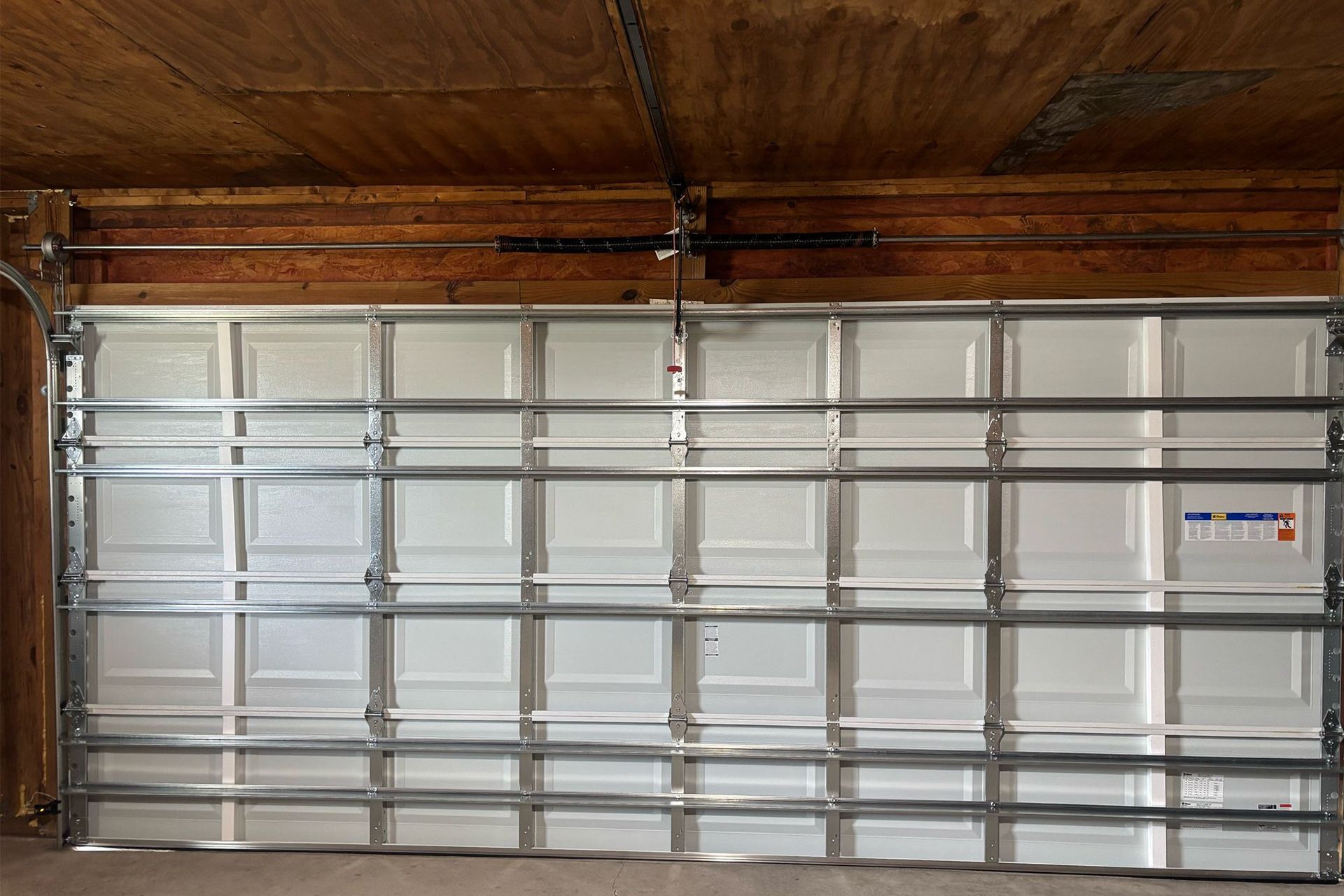Top Reasons Why Your Garage Door Won't Close
Is your garage door refusing to close? It can be frustrating and inconvenient, especially in a rush. A malfunctioning garage door can disrupt your daily routine and compromise the security of your home. If you're facing this issue, don't panic. There are several common reasons why your garage door won't close, and most can be easily resolved. This comprehensive guide will explore the reasons behind garage door closure problems and provide troubleshooting tips to help you get your garage door back in working order.
- Lack of Power to the Opener
One of the first things to check when your garage door won't close is the power supply to the opener. Your garage door opener relies on electricity to function properly. Start by ensuring the opener is plugged into a nearby outlet on the ceiling or wall. The plug may have become loose or disconnected while cleaning or moving items in the garage. If the plug is loose, reconnect securely and close the garage door again.
If the opener is still not receiving power, check if the circuit breaker has tripped. Go to your breaker box and locate the breaker that controls the garage door opener. If it has tripped, reset it to restore power to the opener. After resetting the breaker, attempt to close the garage door to see if the issue has been resolved.
2. Dead Batteries in the Transmitter
Another potential culprit for a garage door that won't close is dead batteries in the transmitter or remote. Garage door remote batteries can die unexpectedly, even if they were just used to open the door. If you find that your garage door opener is receiving power but not responding to the remote, it's time to check the batteries.
Start by using the wall-mounted garage door opener button or outdoor keypad to close the garage door. If these methods work, the remote's batteries likely need to be replaced. Remove the backplate of the transmitter and replace the batteries with a fresh set. Most opener remotes use standard household batteries such as AA, AAA, or flat disc batteries. If you don't have any on hand, you can easily find them at your local hardware store. Once you've replaced the batteries, try closing the garage door again to see if the issue is resolved.
3. Obstruction Blocking the Remote Signal
Sometimes, an obstruction can block the signal between the remote and the garage door opener, preventing the door from closing. Check for any obstructions that may be interfering with the remote signal. Clean the remote's antenna and ensure it is pointed directly at the opener when pressing the button. Additionally, clear away any tree branches or other obstacles blocking the signal's path.
If the remote still doesn't work after removing obstructions, check the opener's antenna for signs of damage. A broken antenna can prevent the remote signal from reaching the opener, requiring professional repair. Additionally, weak batteries in the remote can limit its range. Consider replacing the batteries to ensure optimal performance.
4. Pulled Cord Switch
Sometimes, the solution to a garage door that won't close is as simple as checking the cord switch. The cord switch, also known as the safety cord, allows you to manually open and close the garage door during power outages or emergencies. Someone in your household may have accidentally pulled the cord switch, unknowingly disconnecting the garage door from the opener.
To check if the cord switch is the issue, pull it towards the opener to reconnect it. Then, try using the remote to close the garage door. If the door closes successfully, the problem was a disconnected cord switch. If the issue persists, contacting a professional to inspect your garage door opener for potential mechanical failures is best.
5. Motor Circuit or Mechanical Failure
If none of the previous troubleshooting steps have resolved the issue, there may be a more complex problem with your garage door opener. Motor circuit or mechanical failures can prevent the opener from opening or closing the door. These issues often require professional repair or replacement.
If your opener is still under warranty, contact the manufacturer for a possible replacement. Sometimes, an opener with a faulty motor circuit may be eligible for a free replacement or repair. However, if your opener is old and no longer covered by warranty, investing in a new one may be more cost-effective. A professional garage door company can assess the situation and provide the best action.
6. Blockage in the Closing Path
Government regulations require automatic garage doors to incorporate safety features that prevent them from closing if there is an obstruction in their path. If your garage door starts to close but then reverses, something in its closing path may trigger the safety feature. Check the floor beneath the garage door for any blockages, such as toys, rocks, or debris. Remove any obstructions and try closing the door again.
Testing the safety feature to ensure it's functioning correctly is important. Place a wooden block beneath the garage door and attempt to close it. The safety feature works as intended if the door automatically reverses upon encountering the block. However, if the door presses against the block, contact a professional to recalibrate the safety feature.
7. Misaligned or Obstructed Sensors
Modern garage doors are equipped with photo-eye sensors that act as another layer of safety. These sensors are located a few inches above the ground on both sides of the door and detect objects in the door's path. If the sensors detect an obstruction, the door will not close or reverse to prevent damage.
If your garage door won't close, check the sensors for any obstructions or dirt blocking their vision. Clean the sensors' lenses with a soft rag and ensure they face each other. If the sensors are misaligned, the door may not close properly. For a more detailed guide on troubleshooting photo-eye sensors, refer to Continental Door's photo-eye troubleshooting video.
8. Worn or Broken Springs
The springs in your garage door play a crucial role in its operation. Torsion springs above the door and extension springs attached to cables help lift and lower the door safely. Over time, these springs can wear out or break, causing the door to malfunction.
A spring may have broken if you heard a loud, gunshot-like sound when operating your garage door. Broken springs can prevent the door from closing or cause it to crash to the ground. Due to the high tension and pressure involved, a professional should only perform spring repair or replacement. Contact a garage door repair service immediately if you suspect broken springs cause your door not closing.
9. Misaligned Roller Tracks
The roller tracks guide the garage door as it opens and closes. If the tracks become misaligned, the door may slow down, make unusual noises, or refuse to close properly. Inspect the tracks using a long level and look for bends or misalignments.
If you notice any issues with the roller tracks, it's best to seek professional help for repair. Attempting to fix misaligned tracks yourself can lead to further damage and potentially compromise the safety of your garage door.
10. Error in the Limit Settings
The limit settings on your garage door opener determine how far the door should travel when opening or closing. If these settings are incorrect, the door may not close or reverse after touching the ground. Resetting the limit settings can often fix this problem.
To recalibrate the limit settings, it's recommended to contact a professional garage door technician. They have the expertise and specialized tools to adjust the settings correctly. Adjusting the limit settings yourself without proper knowledge can result in further complications.
Conclusion
When your garage door refuses to close, it can be a frustrating and inconvenient problem. However, you can identify and resolve the issue with the troubleshooting tips and common reasons outlined in this guide. From checking the power supply and replacing batteries to inspecting sensors and springs, it's essential to approach each troubleshooting step with caution and, when necessary, seek professional assistance.
If you're experiencing ongoing issues with your garage door in the St Augustine, Jacksonville, FL, consider contacting
Door Master Clinic. Our team of experts specializes in
garage door repair and can help diagnose and resolve any problems you may be experiencing. Don't let a malfunctioning garage door disrupt your daily routine.
Contact Door Master Clinic today for reliable and efficient garage door services.










